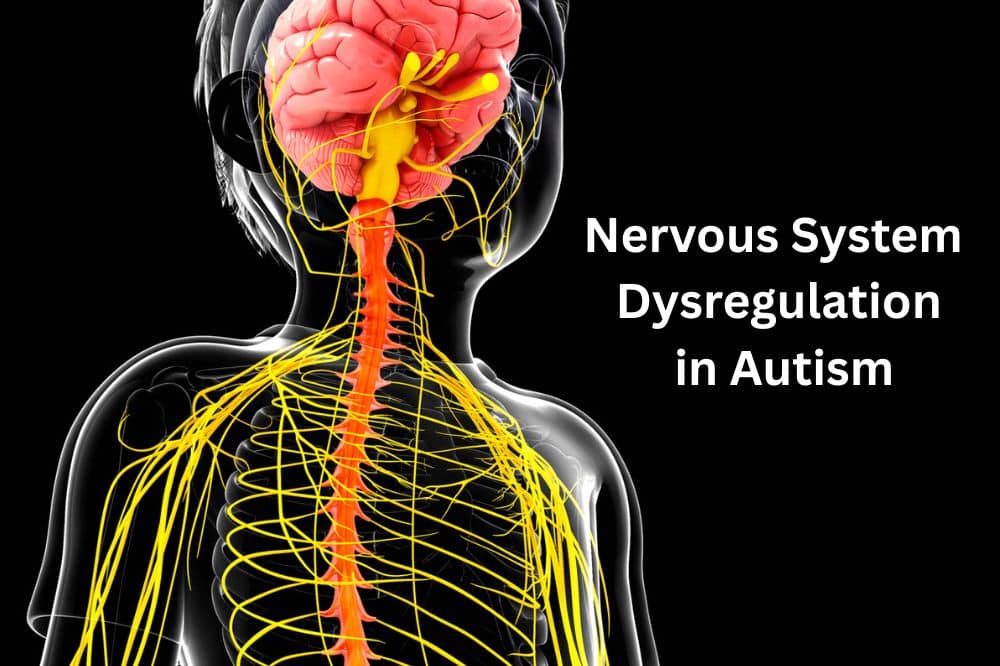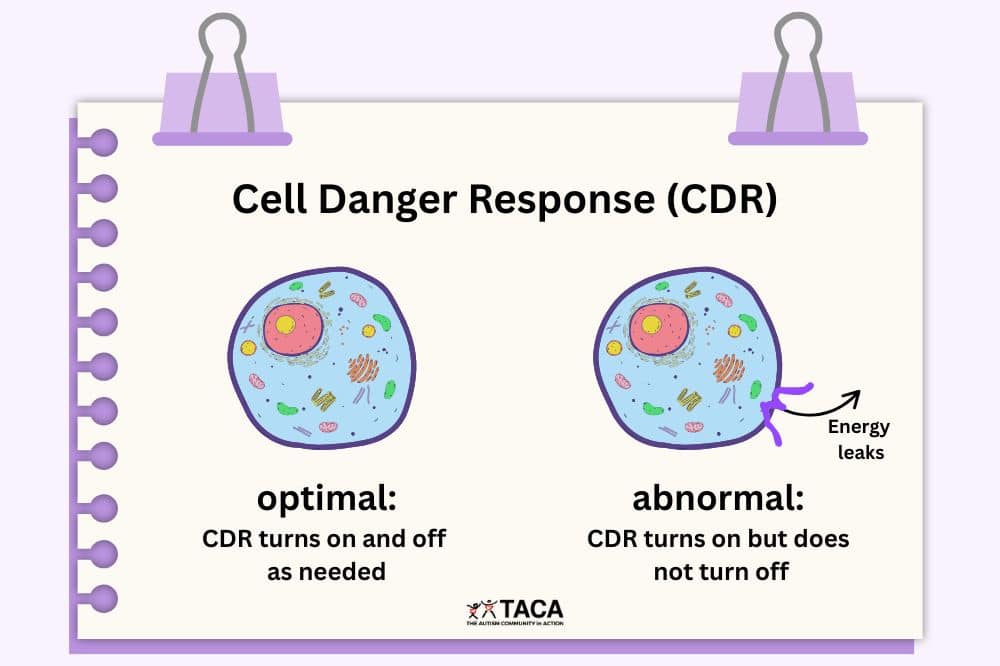Executive Functioning Skills
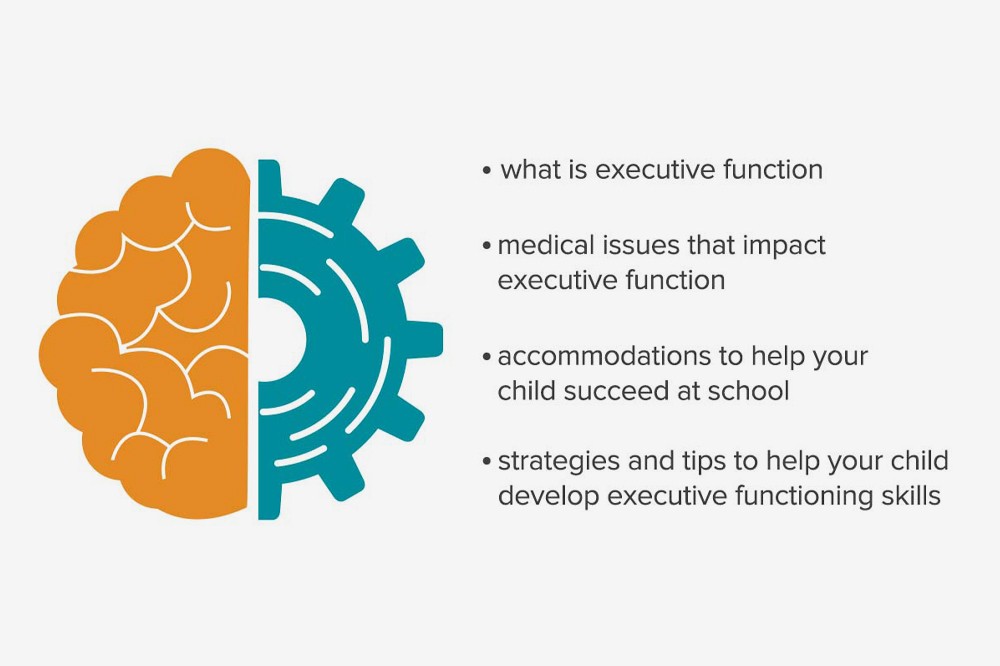
All contents of this resource were created for informational purposes only and are not intended to be a substitute for professional advice, diagnosis, or treatment. Always seek the advice of your physician, therapist, or other qualified health providers with any questions or concerns you may have.
Executive function is an umbrella term used to describe a set of cognitive skills we use to successfully navigate everyday life. We rely on them to learn, achieve goals, manage emotions, pay attention, organize, plan, and adapt to our environment. While everyone must learn and develop executive functioning skills throughout their life, people with autism often struggle with executive function, requiring accommodations and explicit instruction in order to thrive.
What is Executive Function?
Executive function encompasses a broad range of neurocognitive skills. Typically, executive function is broken down into three areas:
- Working memory: the ability to retain and use new information.
- Mental flexibility: the ability to adjust our way of thinking in order to adapt to various situations, demands, or perspectives.
- Self-Control: the ability to ignore distractions or temptations in order to accomplish a task or goal. In short, the ability to think before acting.
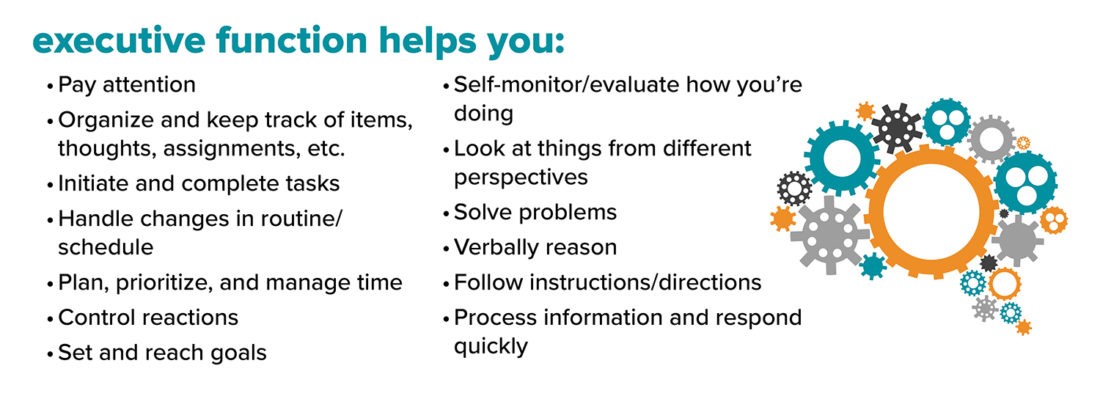
Medical Issues that Impact Executive Function
Executive functions are housed in the frontal lobe and prefrontal cortex of the brain. Consequently, medical issues that impact these areas of the brain, can cause or contribute to problems with executive function.
The good news is that many of these issues are treatable! Because of this, you will want to find and work with an experienced doctor to evaluate if your child’s executive functioning issues can be attributed to a treatable medical cause, such as:
- Seizures
- Learn more about Seizures in Autism Spectrum Disorder here
- Cerebral Folate Deficiency
- Mitochondrial dysfunction
- Learn more about Mitochondrial Dysfunction in Autism here
- Neurotransmitter imbalances
- GABA/Glutamate imbalance
- Retained primitive reflexes
- PANS/PANDAS
- Learn more about the Immune System, Autism, and PANDAS/PANS here
- Poor diet and nutrition
- Vitamin/mineral deficiencies
- Exposure to environmental toxins
- Blood sugar regulation issues
Developing Executive Functioning Skills
Because they are essential to everyday life, your child will have opportunities to develop and improve executive functioning skills at school and at home. Furthermore, reinforcing skills across multiple environments (generalizing) increases your child’s ability to master and maintain them.
Using Assessments to Determine Which Skills to Work On
In order to determine which skills to work on, you need to know your child’s strengths and areas of need. While you may already have a good idea about which executive functioning skills your child struggles with, an assessment conducted by a qualified professional provides more specific information, including accommodation recommendations and treatment options.
The following are examples of standardized assessments:
- Behavior Rating Inventory of Executive Function (BRIEF)
- Conners 3rd Edition
- Comprehensive Executive Function Inventory (CEFI)
- Weschler Intelligence Test for Children (WISC): subtests digital span and spatial span
- Test of Variables of Attention (TOVA)
- Wisconsin Card Sorting Test
- Delis-Kaplan Executive Function System (D-KEFS)
- Typically used in older children and adults
Public School
Unfortunately, struggles with executive function are often amplified by the school environment. Parents need to work together with the IEP team to develop helpful accommodations and modifications to set your child up for success. Additionally, goals should be incorporated into the IEP and explicitly taught so that your child learns management and coping strategies for the future.
Begin addressing executive function while your child is in elementary school rather than waiting until Transition. After all, the earlier you start working on these skills, the better.
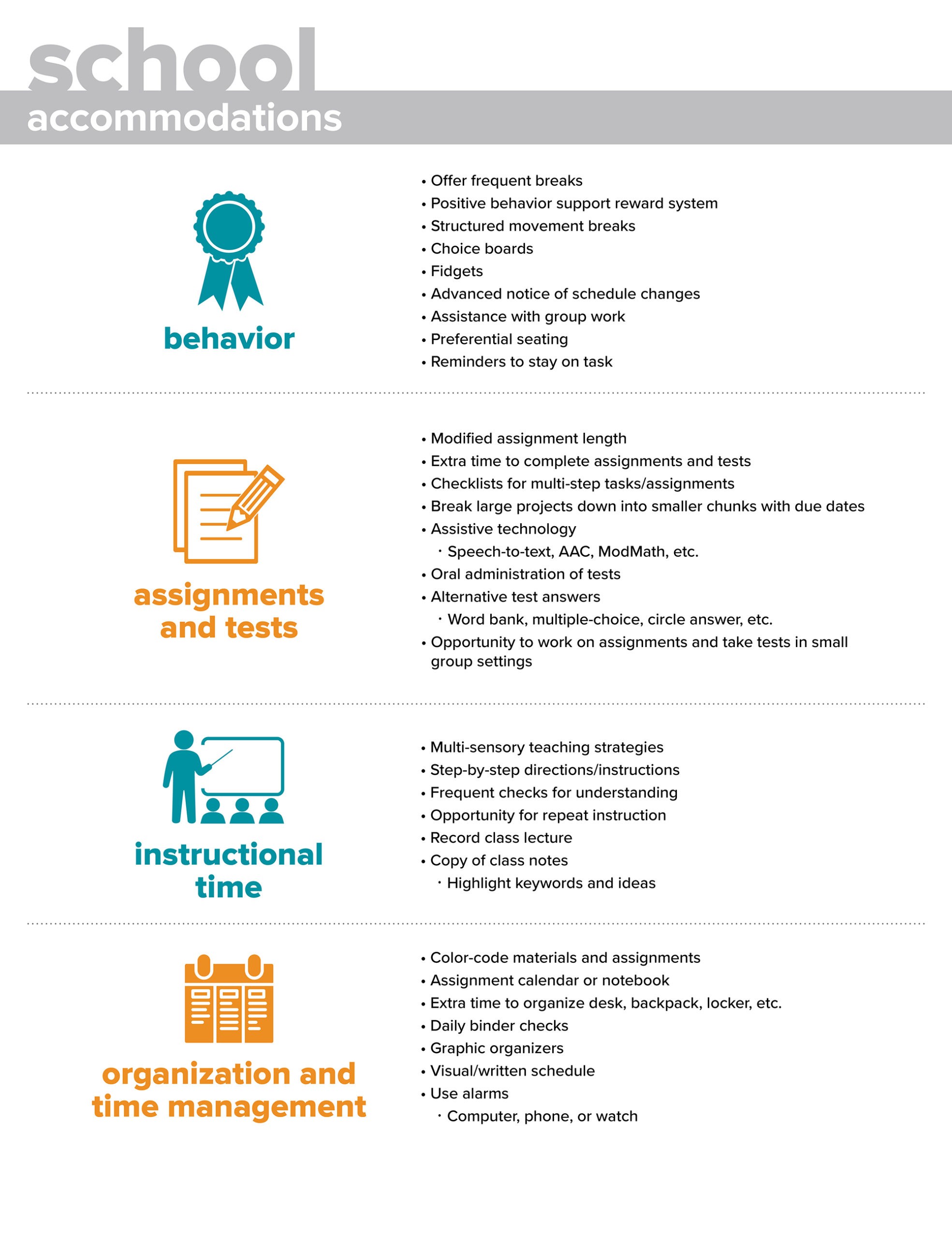
Below are links to IEP Goal Banks to assist you in creating goals with your child’s IEP team:
At-Home
Besides school, your home provides many opportunities for you to help your child improve their executive function. For example, a great way to model executive functioning skills is to be intentional by showing your child how you organize and plan your day. Likewise, verbalize your thought processes throughout the day to demonstrate why you make the decisions you do.
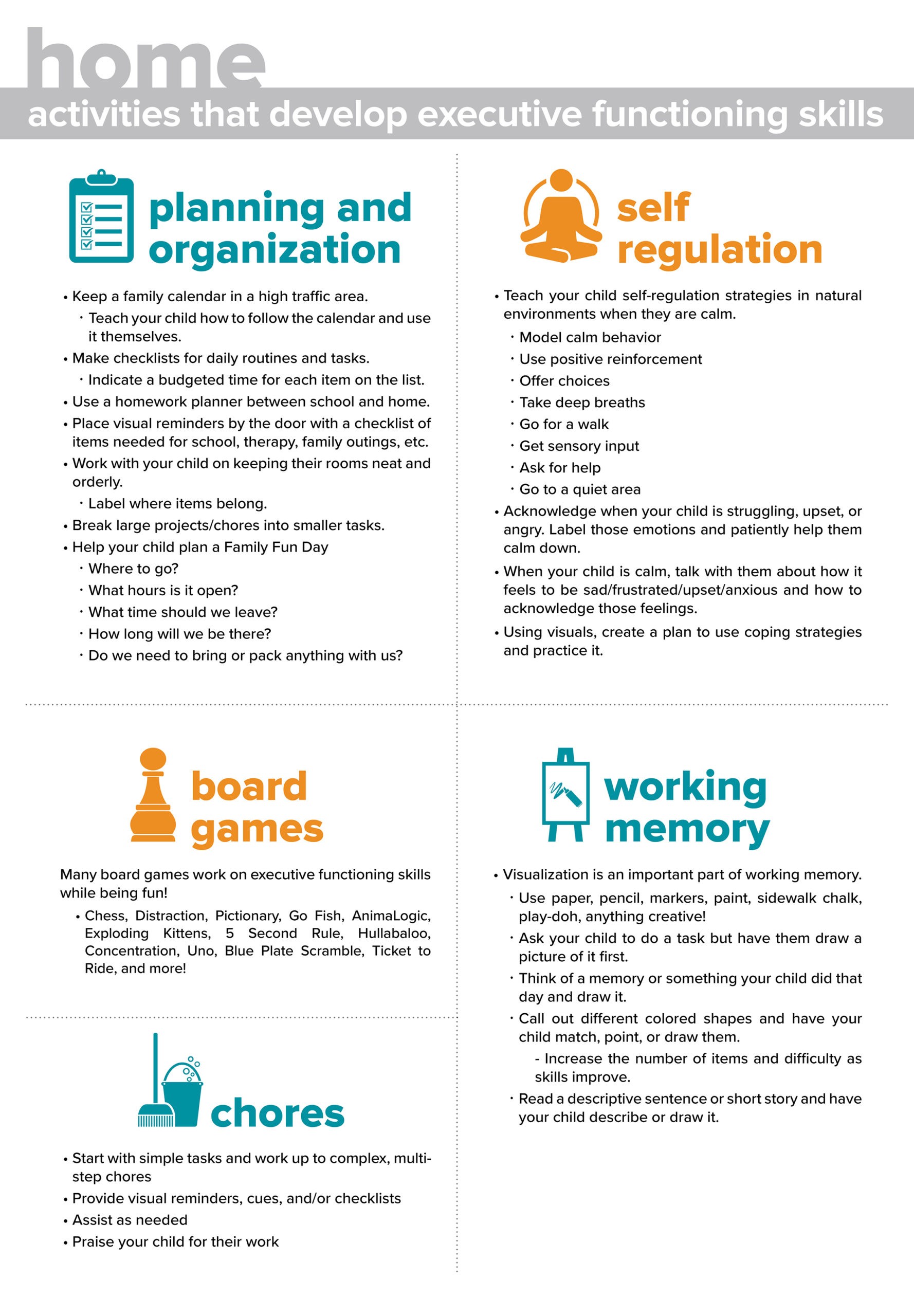
Conclusion
In summary, issues with executive function make it difficult for people to learn and complete a variety of tasks needed in everyday life. Both the school and home environments have opportunities to teach children executive functioning skills. Work with your IEP team on appropriate goals and accommodations while developing a home plan for your family.
Additional Resources
- Autism and Everyday Executive Function: A Strengths-Based Approach for Improving Attention, Memory, Organization and Flexibility by Paula Moraine
- Solving Executive Function Challenges: Simple Ways to Get Kids with Autism Unstuck & On Target by Dr. Lauren Kenworthy, Dr. Laura Gutermuth Anthony, Katie Alexander, Monica Adler Werner, Lynn Cannon, and Lisa Greenman
- Smart but Scattered: The Revolutionary “Executive Skills” Approach to Helping Kids Reach Their Potential by Peg Dawson and Richard Guare



